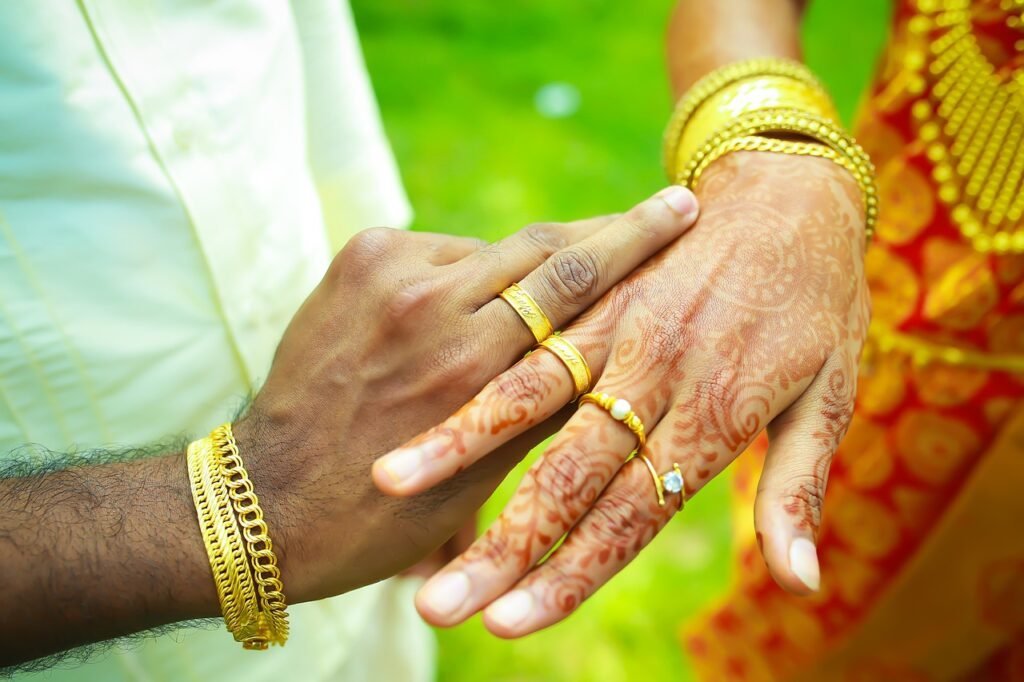Read in : தமிழ்
“I got married when I was 13 and married off my daughter when she was 17. My granddaughter is doing her degree and she will decide when to get married. Why should the government now revise the marriageable age for girls?” asks Muthamizh, an elderly woman.
The central government has decided to revise the legal age of marriage of women from 18 to 21 by amending Prohibition of Child Marriage Act, 2006. Having drawn the ire of the opposition, the bill has now gone to the parliamentary standing committee for discussion.
Social indicators relating to women have improved in Tamil Nadu. Girls have better opportunities to study today. “Girls these days want to prefer their life partners on their own at the age they want. Why is the Centre so keen on revising age now?” asks Muthamizh.
Tamil Nadu has improved in social indicators like socio-economic growth, education and job opportunities. Many of them are used to getting married beyond the age of 21. Central government mandating this age is not relevant in the state
Dr G R Ravindranath from Doctors Association for Social Equality says that the average marriageable age of Tamil Nadu girls stands at 22.5. Tamil Nadu has improved in social indicators like socio-economic growth, education and job opportunities. Girls in the state get equal opportunities to study and pursue their career. And, many of them are used to getting married beyond the age of 21. Central government mandating this age is not relevant in the state, he said.
On the flip side, this revision of marriage age will lead to illegal pregnancies and abortions, Ravindranath says. The Centre should concentrate on creating an atmosphere where girls can study and work. The Centre reasons that many young girls get married at 18 and child mother mortality rate is higher in these marriages. But the government is not coming out with schemes to boost nutrition among adolescent girls. “An act alone will not solve problems. The government should focus on creating infrastructure for girls to get nutritious food, education and jobs,” he said.
The true intention of this amendment seems to be to restrict women’s right to choose their partners of choice especially outside communities.
Advocate Sudha Ramalingam said that mere laws don’t serve the purpose. For instance, the Dowry Prohibition Act 1961 did not prevent dowry deaths. People still give dowry and take dowry. If the legal marriage age of women is revised to 21, what would happen to women who got married earlier? The success of a law is in its implementation. And, how is the centre going to implement this act? “Majority of women pursuing higher studies get married after 21. The logic here is that the government should provide educational facilities and job opportunities to women. The true intention of this amendment seems to be to restrict women’s right to choose their partners of choice especially outside communities,” she said.
Social activist and feminist Jeeva Sundari seconds the opinion. The amendment is done to promote endogamy. It is an indirect attack on women selecting their own life partners and stopping them from marrying outside the community. “I see it as an effort to discourage inter-faith marriages. The country is bogged down with problems but the government is keen on revising the legal age of marriage for women,” she said.
Some decades back in Tamil Nadu, girls used to be married at a young age due to poverty. The situation has improved manifolds in Tamil Nadu. It makes no sense to force an age on women to get married. They want more educational institutions and job opportunities, activists say.
Read in : தமிழ்
